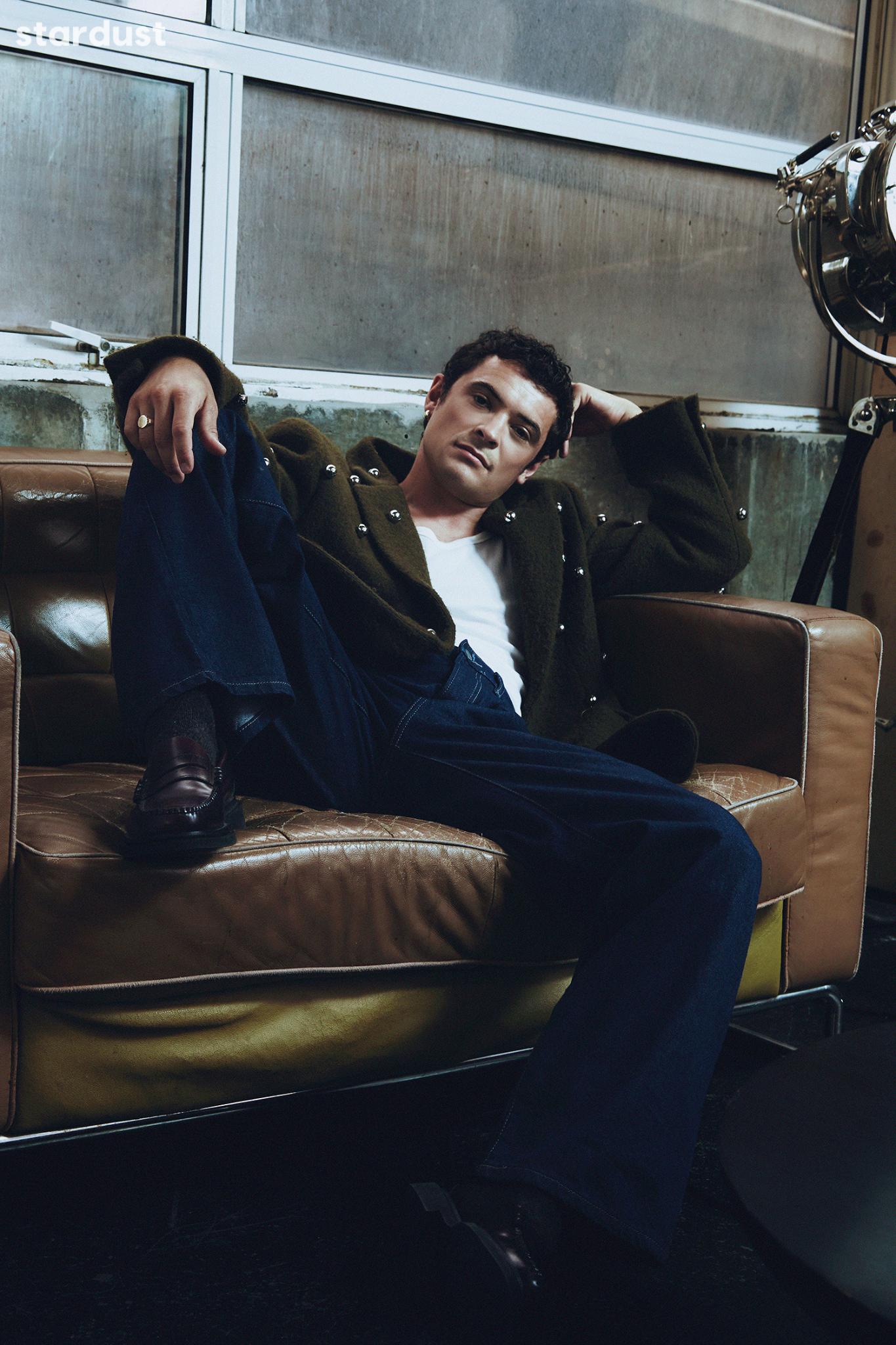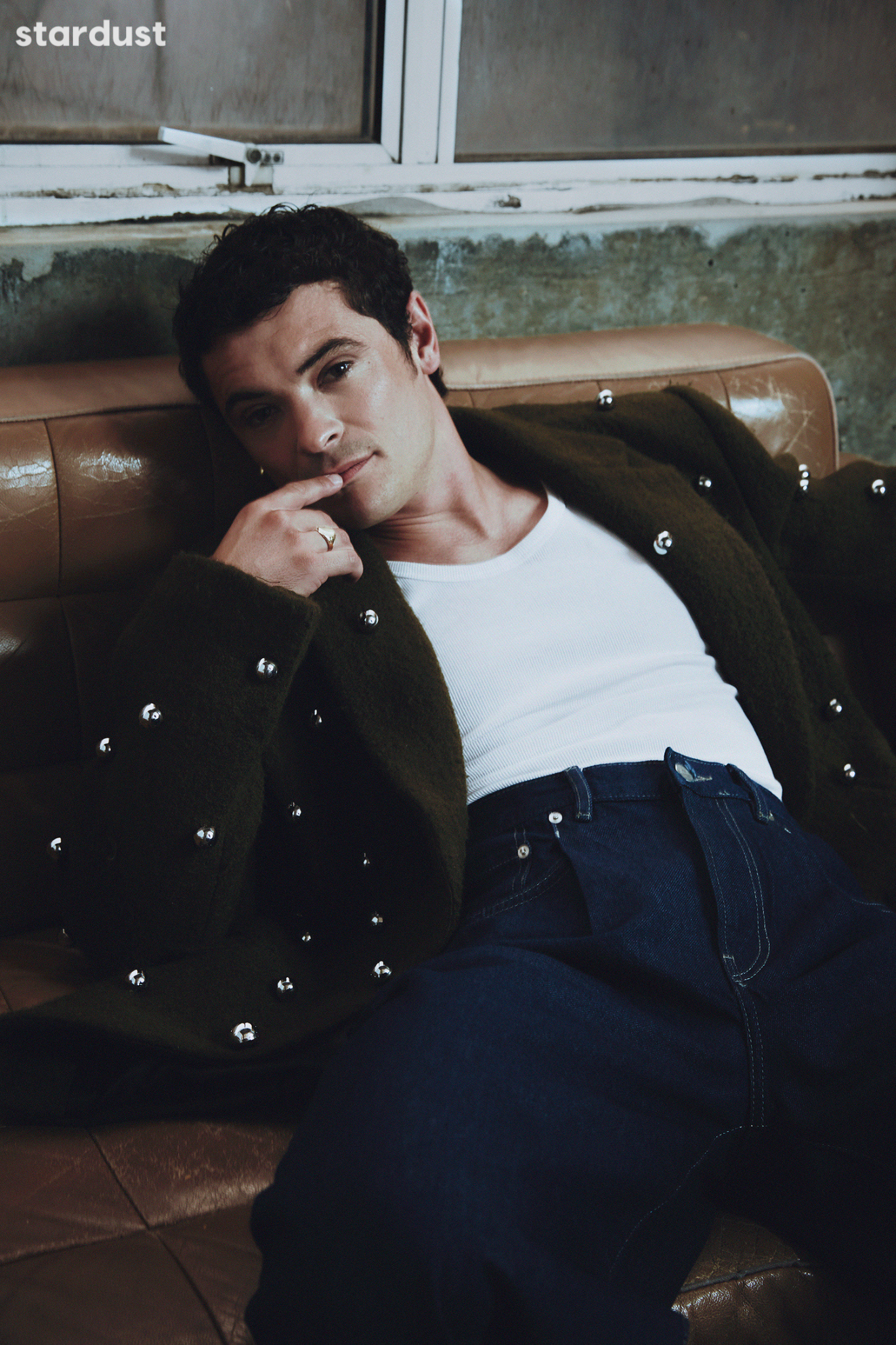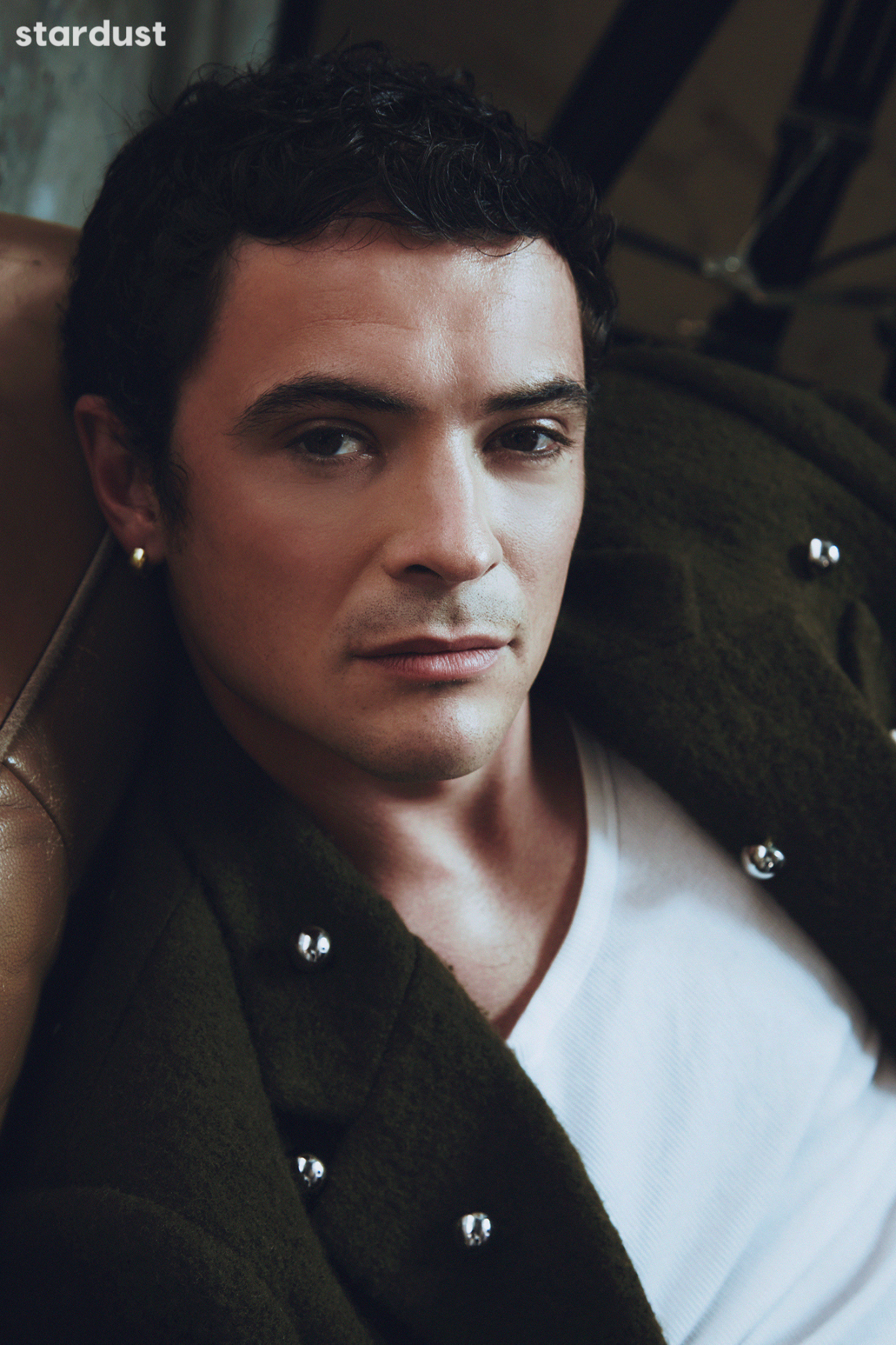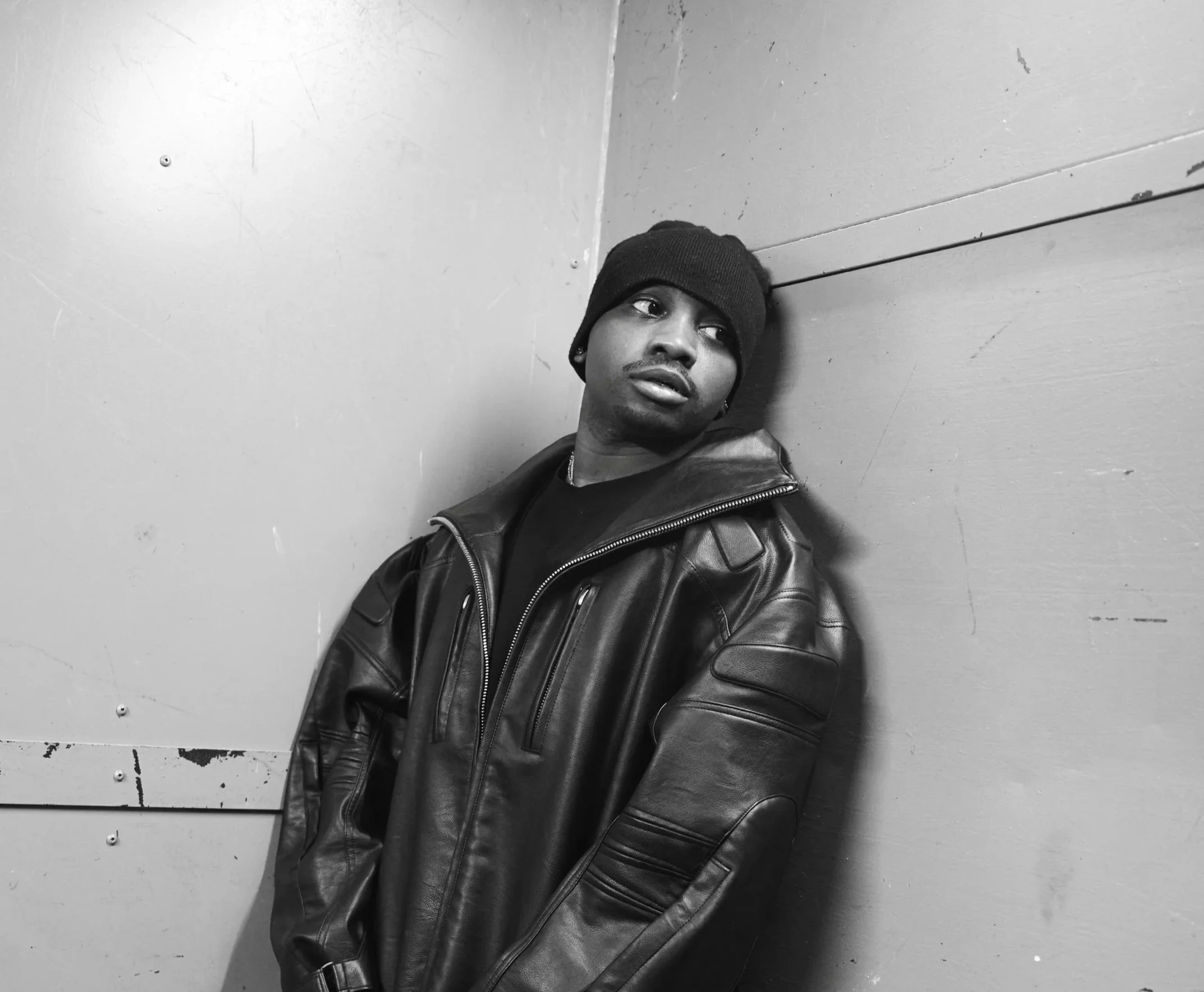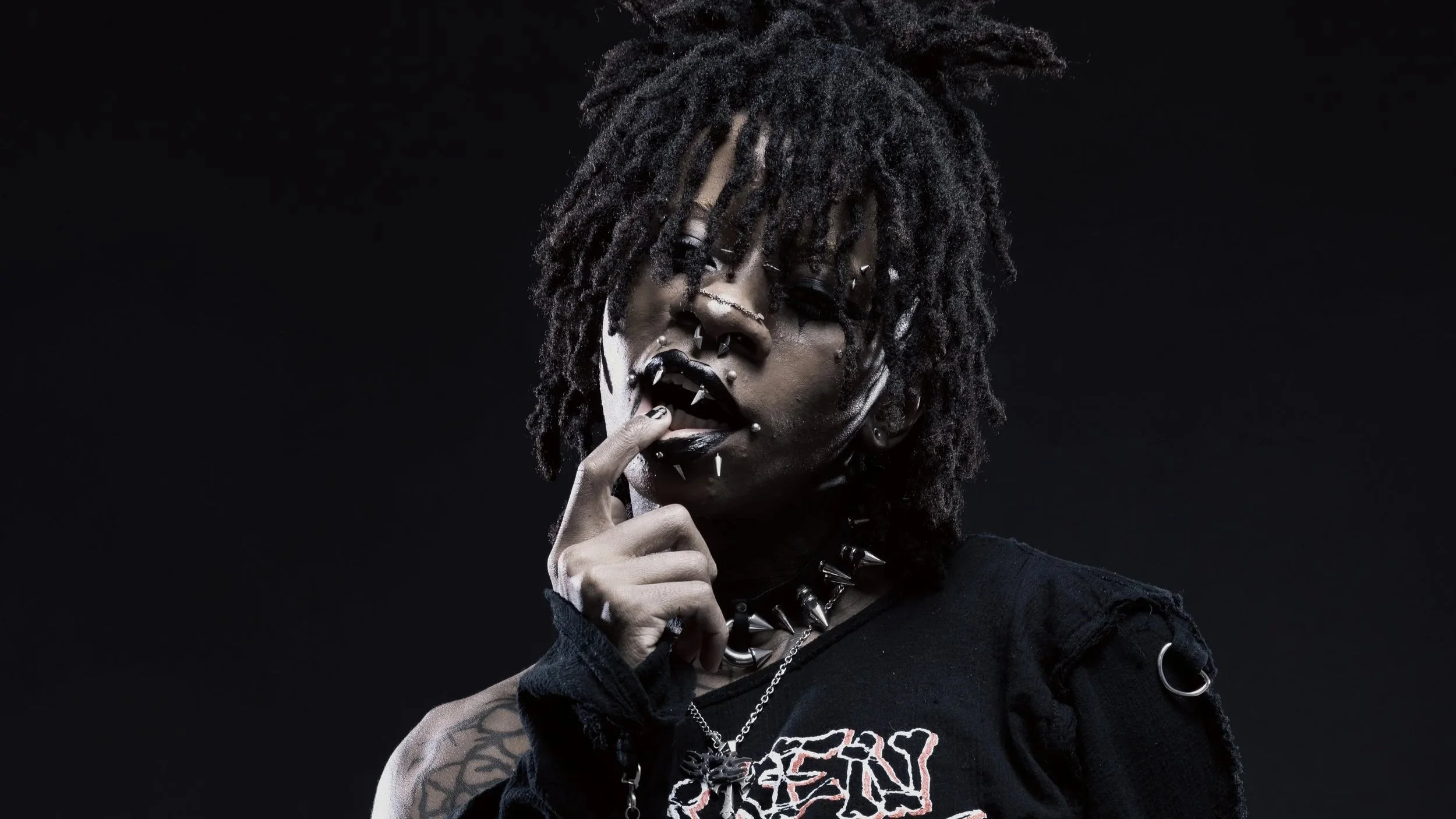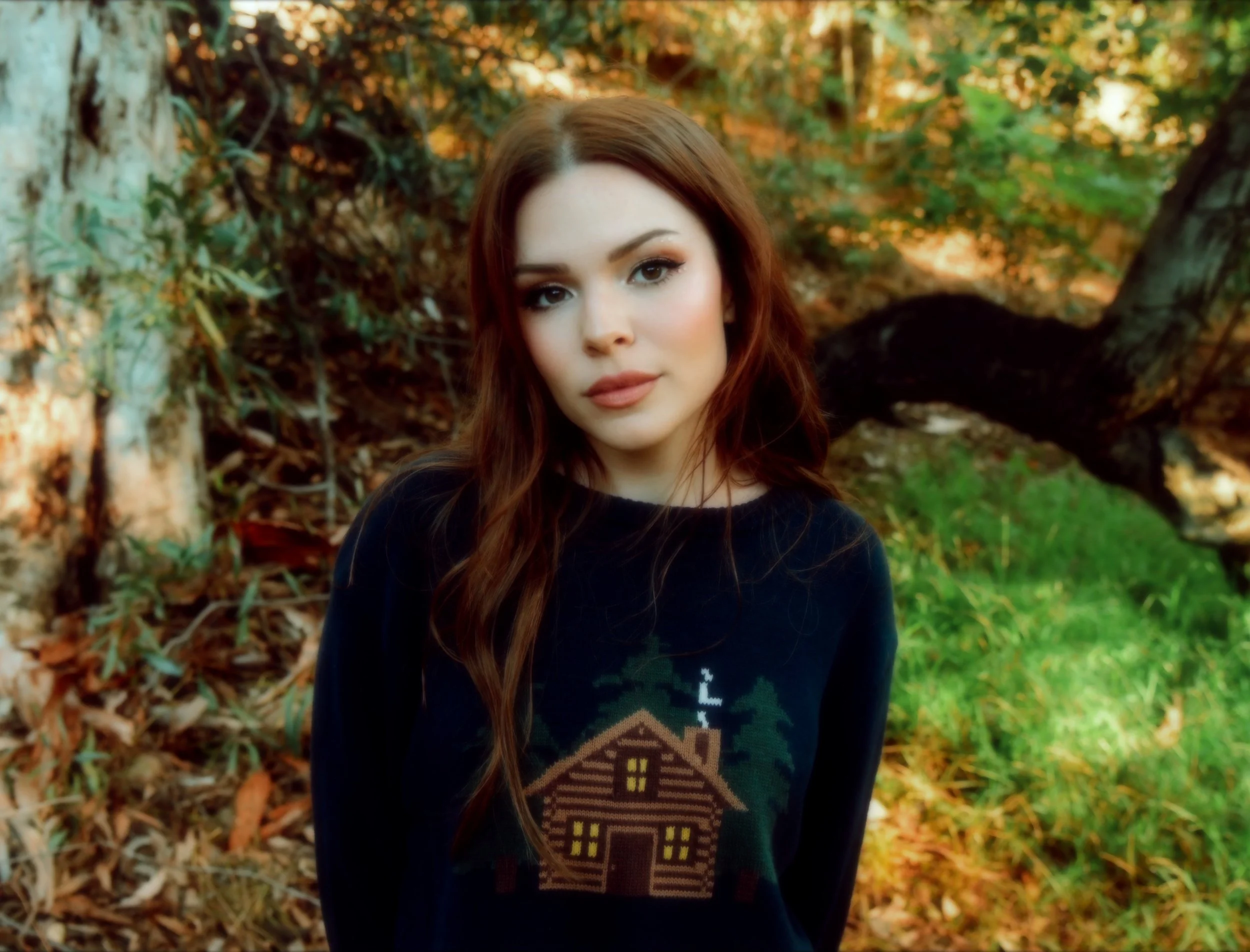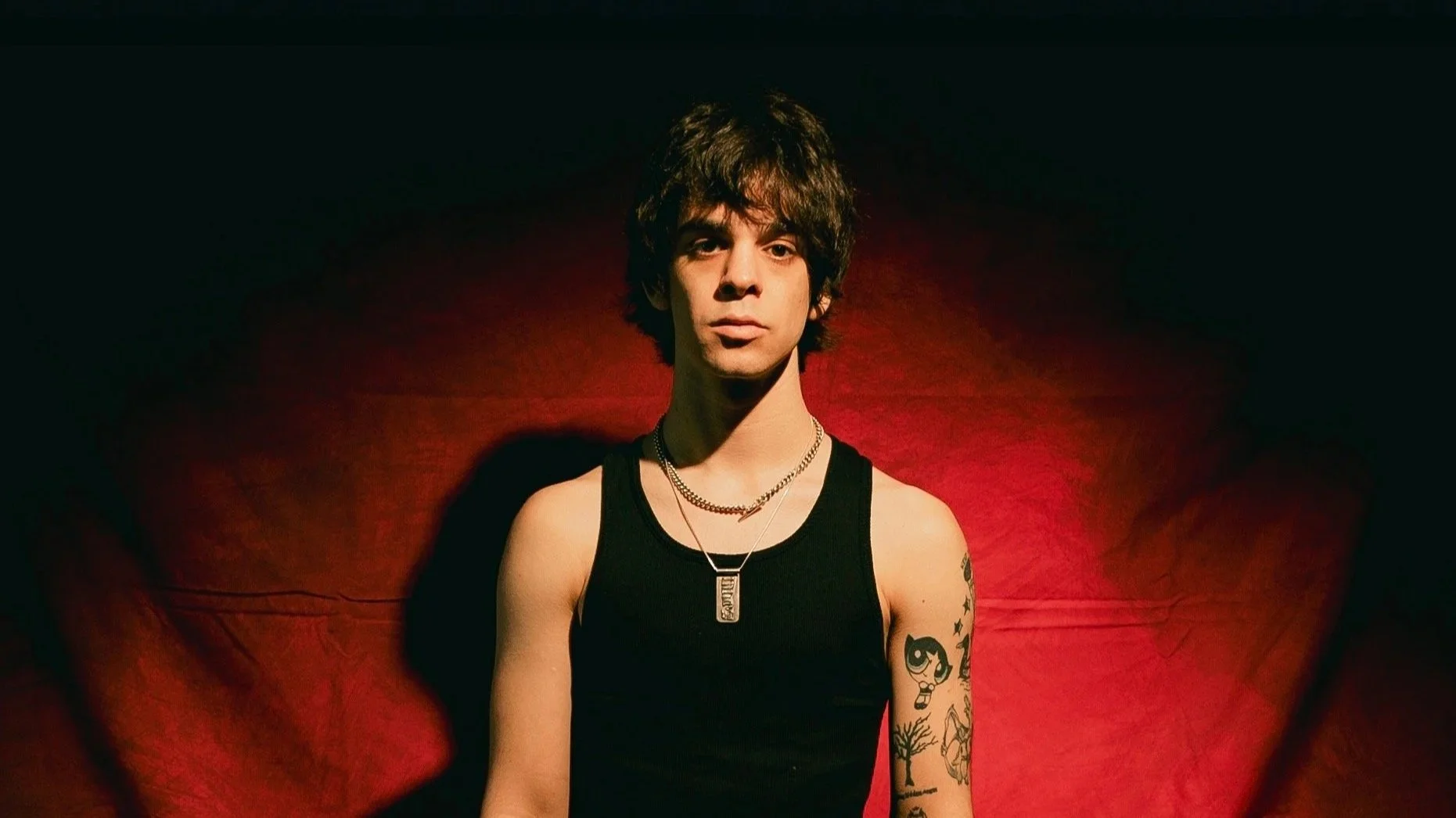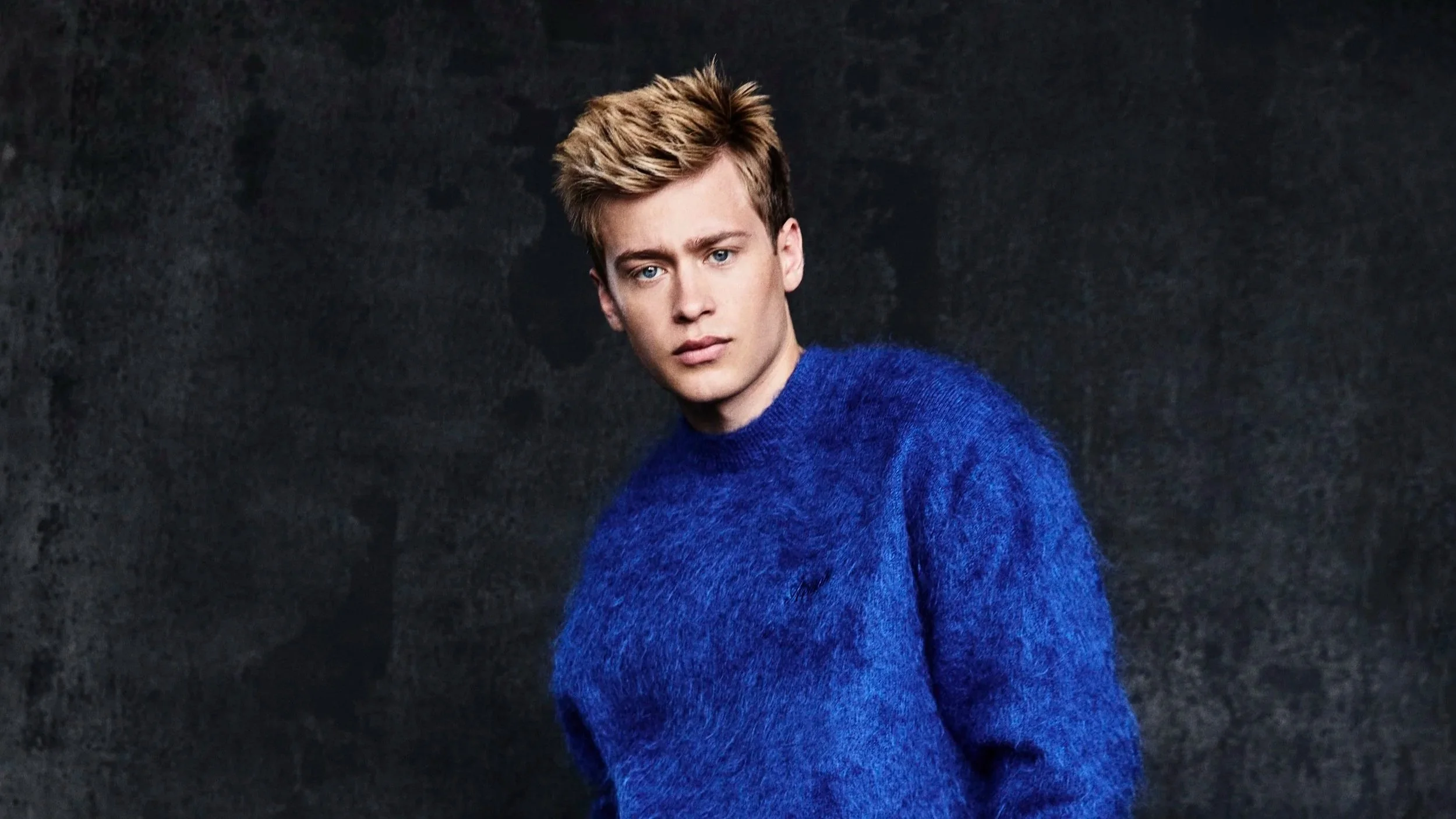Jonny Labey Opens Up About Hollyoaks, His Directing Plans, and Swirl State
Jonny Labey’s route has been straightforward in shape, busy in practice. Theatre first, then a steady build on screen, now adding his own projects behind the camera. In the early stages of his career, he found opportunities in London productions—first in In the Heights with Drew McOnie, then leading Baz Luhrmann’s Strictly Ballroom The Musical in the West End, with a stint in White Christmas rounding out that period. It’s the kind of dynamic foundation that travels well.
Television introduced him to a wider UK audience as Paul Coker in EastEnders. And since then, he’s appeared in Doctors, stepped into Netflix worlds with The Sandman, and the holiday feature Jingle Jangle. More recently, Labey joined Hollyoaks as Rex Gallagher, folding into stories that brush up against organized crime and exploitation—arriving as the long-running soap hits its 30th anniversary this October.
Film sits alongside the TV work. Labey’s early feature Soft Lad earned attention (longlisted by BIFA for Most Promising Newcomer), and that impulse to push into new lanes has since widened into producing and directing. In fact, in 2025, he founded Doing Brave Productions, a banner for projects he’s developing and fronting. Which leads to Swirl State—a project shot in Jersey and threaded with his original music—tracking mental-health struggles through the very ordinary setting of an ice-cream van. And the résumé is clearly broad on purpose; the next phase is about what he chooses to make of it.
When you first joined Hollyoaks, what aspects of Rex were on the page, and what’s something you brought, or added, to the character?
Jonny Labey: Hilariously, from what I remember, Rex was written to be a very intimidating character, both in presence but also in size; described as ‘mad, bad and dangerous’! I remember sitting in the audition room next to some mountainous, full-bearded men, thinking ’Here goes, I’ll focus on the mad and bad bit. ’ Up until this point in my career, I’d yet to be cast in a role so explosive and troubled.
I was always trying to dig into his past, which has unfolded before us all over the year and a half. Originally a nomad and a threat to everyone, then an adopted gang member under Blue, then to find a long-lost sister, then a criminal grandad, and now to reveal my sister is actually my mother! It’s really allowed for that hard shell to texture, and the thing that I really love now in that dynamic is that the audience has had a full-rounded story of what makes Rex the way he is. Although we often feel for the pain and loss he’s experienced, we also know that he can fly off the handle at any given minute, it’s brilliant.
Is there something about the role that you’ve grown to appreciate over time that you didn’t have coming into the series?
Jonny Labey: I’ve really appreciated the dynamism and split conflict of being in such a dark and dangerous family, fighting with nature or nature and the ever looming questions in his head: ‘Is it in my blood or was the water poisoned?’ Mixed all of that with the beautiful relationship and sense of home that he’s found with Ste, that he’ll go to the ends of the earth to save, yet will risk it all to protect, and it’s a winning formula, which I can’t wait to see what’s next.
Working with Kieran Richardson and Tamara Wall is like a game of pinball, storylines bounce from one drama to the next, and yet somehow still every now and then there’s these brilliant comic streaks! It’s a full buffet of drama which Hollyoaks does like no other soap, one moment you’re dancing around a garage with a broom giving it ‘Grease Lighting’ and the next moment you have your unexpected mother and soon to be Aunty at gunpoint!
Between EastEnders and Hollyoaks, what’s been the best part of working in soaps for you?
Jonny Labey: The best part of doing a Soap Opera is always the team and the cast. It’s the off-and-on set friendships you can build over the years, which is rare to have as an actor. The other incredible thing in terms of my career as a filmmaker is that it’s the best training ground for my own work. If you consider the amount of coverage these shows produce at such an entertaining standard, it means we’re constantly working at speed, shooting out of chronology with high-intense, dramatic story lines as well as tender, heartfelt nuances. As I’m the world’s biggest sponge, I’ll literally go hang out in different departments for fun, whether that’s in script supervision to pick their brains on structuring writing, or to the lighting crew cabins to talk through every bit of kit with a cuppa tea and a hobnob… I love soap communities.
We purposely managed to shoot Swirl State right before I started filming for Hollyoaks; however, it had been eight years since I’d played Paul Coker in EastEnders at that point, and a lot of that knowledge wasn’t quite as fresh as it is now. We shot the entire film, but had to go back to reshoot a scene, and although I’d only been on Hollyoaks for about five months by the time of the reshoot, as a director on my first film, I can’t tell you how much more I knew on set in terms of directing those around me or what to ask for. I feel inspired, reactive and ready to push myself further than I ever have to the point where this year alone we’ve made and shot five films, we’re currently writing our first feature and we have a sixth film called Gi which we’re shooting later this year with the incredible director Myles Petford, who rocked into our lives through Hollyoaks and for which I’ll be eternally grateful.
With Doing Brave Productions, what kind of genres or stories are you really interested in exploring in the near future?
Jonny Labey: Doing Brave Productions is already well on its way, and although we approach each film with fresh eyes, we’ve very recently realized that there have been a few similar underlying themes, based on the shared experiences we’ve both dealt with. Story-wise, we love a real-life underdog story, who doesn’t? My writing up until now has been a balance of drama and comedy with that rich British undertone which I’ve always loved in films such as Withnail and I, Notting Hill as well as This is England and more recently shows like Brassic. Our first film Swirl State is about a time at my lowest point when I got an unusual job in an Ice Cream van. It seemed too good not to tell, as it seemed like British comedy gold, and I had a lot of quiet times in the van, as it was in March! The underdog part and the cause of the spiral is all about Nathan defiantly standing up for himself within his toxic group of mates. Our most recent film, Gi is currently in pre-production and is a realistic representation of students within a karate dojo and asks the obvious question of how does one end up in a dojo. Are they defending themselves from others or the world around them, or are their fights more internal?
It’s funny that you ask about genre, as myself and Margi have already started merging dance and acting together because without question they are our two strongest art forms. It’s given life to what feels like an entirely new genre of film altogether, and so far it’s been our favorite work yet. Of course the genres change depending on the story, whether it’s drama, comedy, thriller, but the way we tell stories seems to be our unique selling point. For me, dance has always been an acted medium, more so than singing, as it stems from doing or physically embodying a feeling.
Blending and interweaving them together gives the audience more of a private relationship with the character, like a fly on the wall. Dance is the most visually stimulating way of narrating, in my opinion, and it’s interesting to use it within acting scenes. We’re narrating to a modern audience in a world that is now very used to seeing dance through social media; it’s like we’ve accepted it already as a new language. Our first film in this style is called ‘Mannish’, and we can’t wait to challenge this way of working to its fullest potential; it’s very exciting.
Your upcoming film, Swirl State, is said to explore different aspects of mental health. When you first started to flesh out the story, was there something that you always knew you wanted to convey?
Jonny Labey: Absolutely! I left Jersey in pursuit of a career as an actor, dancer, and singer, which at the time wasn’t something the island had much of a future in. So my ambitions, like many others from small towns, were in another field with greener grass. The pursuit of success, in my opinion, whatever industry you’re in, can pave a one-way road with no roundabouts to turn back. I’d left Jersey, a community, a sense of belonging, nature, and an identity to go to London, which is arguably the greatest yet one of the loneliest cities in the world if you get lost. The message I wanted to convey was very simple: happiness is an exchange, and home is a place or a person that makes you feel a sense of belonging. You can find new places, make new friends, and strive for greatness, but there’s always an inner child, and when you find yourself as lost as I did, not wanting to continue, it was doing something simple, unambitious, and in a familiar place that saved me.
One of my favorite quotes in the film is ‘Seeing smiles all day makes you smile, that’s it, the ancient rule of life,’ often as creatives or even as a curious mind who, as a child, longs for something further; we’re always looking outward. It’s the simple exchanges and slower pace of life that brings you back, not the fame, impressive jobs, and want of more. I wanted to remind people you can and should always try to balance both, make time for the simpler things in life… Go and get an ice cream!
What were you most proud of having accomplished by the time the film was finalized?
Jonny Labey: That feeling of finishing what has been a one and a half year project was immense! It was only once it was completed and I watched it for the first time that I remembered the actual experience of having suicidal thoughts, that moment in life shooting forward to me sat in a chair watching the film I’d just made about it was something I’ll never forget. I have to say the biggest thank you to our top geeza editor, the one and only Joshua Wood, who has relentlessly stuck by me and, in times, made me stay longer or go over details that are so minuscule, but we came into it together and had to make sure it’s been worth it and this man I owe the biggest thanks. We’ve carried this energy forward already, and Joshua is now directing Mannish, so the family is forming. I think that is the proudest feeling, knowing that I backed myself to tell this experience from paper to set and go full steam ahead with it. For once in a very long time, I felt out of my depth, which is where the magic happens; it’s the gold down the well, which is essentially a hole of darkness but is full of riches.
To take on something this big has paid off with not only a film that I will treasure for life, but with a newfound passion and verging on obsession, a family with shared interests and hunger who have subsequently become mine and Margi’s entire network, and I love every single one. To our insanely talented composer, Charli Mackie, who composed the entire soundtrack of the film, which, after we’d finished and added her magic, hands down was the moment I started crying every time I watched it back. The pride that this film has started will change my life, and we really hope that people who see it will recognize that feeling and resonate with it, particularly if they’re going through it.
In closing, you’ve successfully moved between dance-led theatre and on-screen performances. Where do those toolkits overlap, and where don’t they?
Jonny Labey: There was a time in my career where, after years of training and West End shows, I took a real hiatus from dancing as I was concerned that the ‘too much musical theatre will deter you from being an actor’ mentality was constantly battling through my mind. From that, I spent years sat on my sofa waiting for the phone to ring. What I love about filmmaking is that there are no rules, there’s just vision and a want to say something. I’m loving the ability to trust myself that I can be the film MAKER, that I don’t have to wait around and lean on my agent to sort the opportunities out for me. They do a fantastic job, but realistically, about 0.0001% of working actors are employed full-time for an entire career, and I’ve come to this beautiful realization that opposes that aforementioned mentality to a point where it’s an utter strength.
My relationship with energy in scenes as a director is intuitive, thanks to my experience as a dancer, as the movement of a camera is like another partner in the scene; we’ve started fusing these styles together in such a way that I feel like I have something a lot of other actors don’t have, which is the ability to dance! It’s like I’d given over the right of being creative, as I was never creating; I was waiting. Filmmaking is so collaborative, and just acting or just dancing is the life of a lone wolf. DV8 and Billy Elliot are some of my biggest life and artistic inspirations. The power of dance is magic, and I seriously don’t think there’s ever a time when I’m not subconsciously mixing them together, and I now feel so privileged to translate these inspirations into my own filmmaking.


